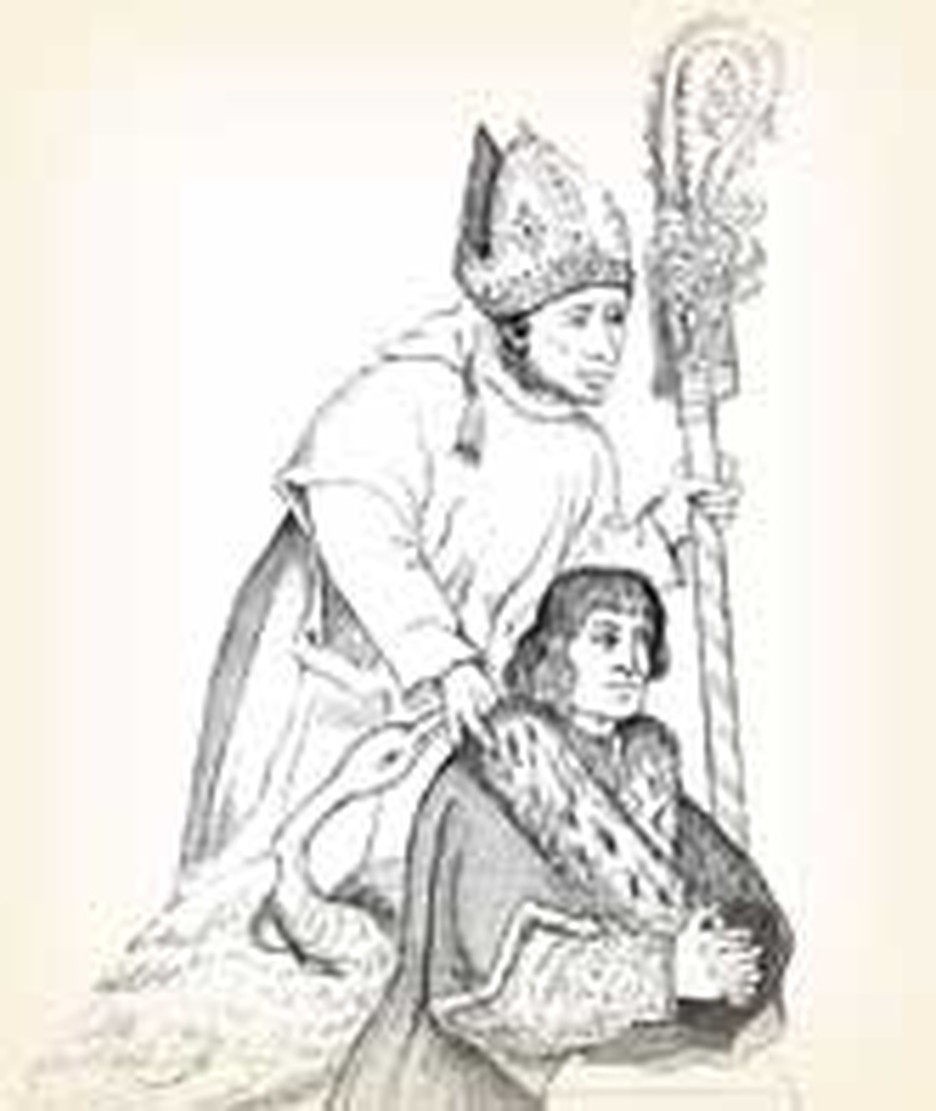
Many a child's life has plunged into change with the death of a parent. The change that befell Hugh of Avalon was out of the ordinary. His mother died when he was a little boy. She had been the sunshine not only his life but of his father's. Grief-stricken, Hugh's father abandoned his castle and entered a monastery, taking eight-year-old Hugh with him. "I will have him taught to carry on warfare for God before he learns to live for the world," he said.
The love and attachment between father and son was deep. When Hugh's father became too old to care for himself, Hugh was his devoted helper. After his father's death, he joined the Carthusians of Great Chartreuse, living in a mountain cave in strict silence on one loaf of bread a week and wearing a hair shirt. He made friends of wild birds and scampering squirrels.
In England, meanwhile, King Henry II had spoken words in his wrath and four of his knights assassinated Archbishop Thomas Becket at his altar. Henry soon rued his rash complaint, and swore to build three abbeys in England as penance. He confiscated peasant land at Witham in Gloucester for one of these houses. But the abbey would not prosper. The king asked Great Chartreuse for an able man to head Witham. The prior sent his best man: Hugh of Avalon.
Hugh discovered Witham had not been paid for. Holding Christ's example before his eyes, he informed the king that he would not occupy the site until the poor had been paid to "the last penny." King Henry paid.
Firm and fair, Hugh became the king's trusted advisor. "I do not despair of you," he told the king. When Henry's ship nearly foundered in a storm, the king swore that "If only my Carthusian Hugh were awake and at prayer, God would not forget me."
Henry made Hugh Bishop of Lincoln. Hugh dressed as simply as he had as a monk. Very out of place he looked among the splendid churchmen who appeared for his installation. The see had long been neglected but Hugh repaired the damage. He won the love of the poor, of children, and of lepers. He even excommunicated the king's own forester who had oppressed the poor. At first Henry was angry, but in the end saw justice and had the man flogged.
Lincoln cathedral had been damaged in an earthquake the year before Hugh became bishop. Hugh founded the present building, and worked on it with his own hands.
Hugh tussled with Richard Lionheart, refusing to raise money for his wars. Unable to move the determined monk, Richard said, "If all bishops were like my lord of Lincoln, not a prince among us could raise his head against them." King John, the third of the brothers, never shrank before Hugh. However, John considered it an honor to carry Hugh's coffin after Hugh died on this day November 16, 1200.
Bibliography:
- Butler, R. Urban. "St. Hugh of Lincoln." The Catholic Encyclopedia. New York: Robert Appleton, 1914.
- "Hugh, St." The Oxford Dictionary of the Christian Church. Edited by F. L. Cross and E. A. Livingstone. Oxford, 1997.
- Jameson, Anna. Legends of the Monastic Orders. London: Longman, Green and Co., 1872. Source of the image.
- Various internet articles.
Last updated April, 2007.


